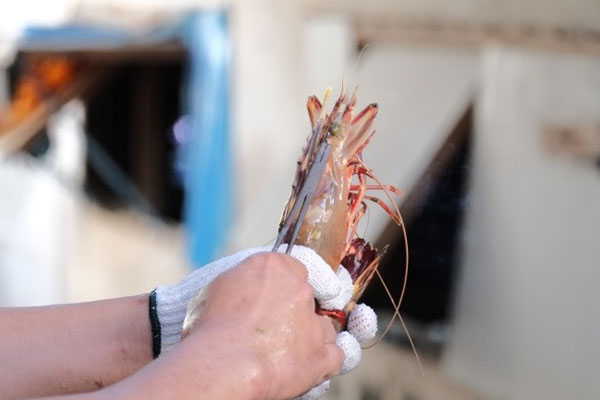ผลงานวิจัยเด่น

Vegan Media Formula for Cordyceps militaris Cultivation and Medicinal Cordyceps Teas
October 24, 2019
Fraction Towers for Deaf Students
October 24, 2019Monoclonal Antibody for Induction of Ovarian Maturation in Shrimp

Institute of Molecular Biosciences, Mahidol University


Shrimp are important aquatic species in Thailand. The unilateral eyestalk ablation technique is generally used to induce ovarian maturation in shrimp. This technique partially destroys the synthesis and storage sites of gonad-inhibiting hormone (GIH) that controls ovarian maturation. The eyestalk ablation can stimulate ovarian maturation and allows continuous spawning, but the quantity and quality of eggs will decrease in the further rounds of spawning. In addition, the eyestalk-ablated shrimp are gradually weakening and eventually die because of the loss of hormone balance. Moreover, the eyestalk ablation is an unethical practice that could become a trade barrier issue in the future. Therefore, a technology utilizes the advantage of monoclonal antibody that can specifically inhibit GIH (GIHmAb) is desirable to induce ovarian maturation and continuous spawning in the eye-intact Penaeid broodstocks (Black tiger shrimp and Pacific white shrimp). The GIHmAb-injected broodstocks give comparable level of shrimp production to eyestalk-ablated broodstocks. Moreover, GIHmAb-injected broodstocks are healthier than the eyestalk-ablated ones, and further rounds of induction are possible. Therefore, it would enable effective utilization of the broodstocks and reduce the cost of shrimp production. Moreover, this strategy circumvents the unethical eye-stalk ablation in shrimp production that avoids a trade barrier issue of shrimp export in the future.

Dr. Supattra Treerattrakool
Institute of Molecular Biosciences, Mahidol University
tsupattra@gmail.com
